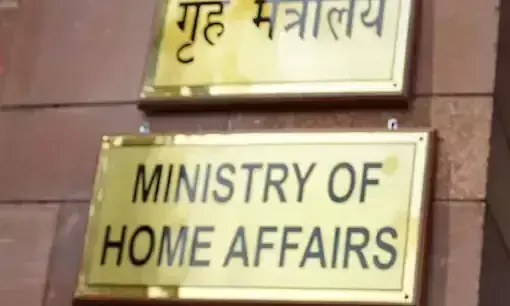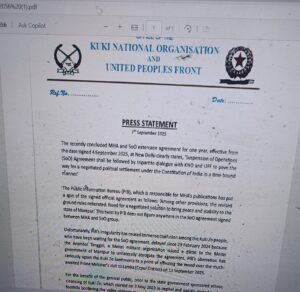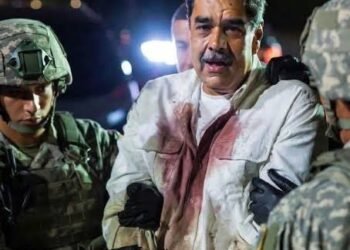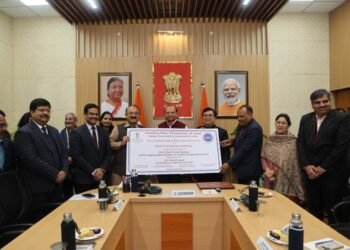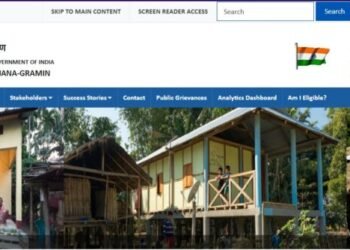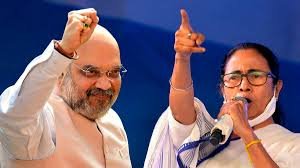KNO’s Dr. Seilen Haokip insists the agreement promises “political settlement under the Constitution in a time-bound manner,” not vague peace talks. UPF’s Aaron Kipgen condemns PIB’s “distortion,” stressing their demand is for a Union Territory and not just a generic solution for peace.
BY Navin Upadhyay
The Kuki National Organisation (KNO) and the United People’s Front (UPF)—the two Kuki-Zo groups that signed a tripartite Suspension of Operation (SoO) ceasefire agreement with the Centre on September 4—have asked the Centre to remove the discrepancies between the contents of the signed agreement and the version presented in the Press Information Bureau (PIB) release.
A cursory glance would show that the Government statement put out on the PIB website on the Ministry of Home Affairs talks with representatives of the KNO, UPF as well as Kuki Zo Council did not reflect the contents of the actual tripartite agreement signed by the three parties. The discrepancies are visible on two key counts.
First, the PIB statement highlighted the “opening of National Highway-02” and the need for a “negotiated solution to bring lasting peace in Manipur” as the key components of the agreement. However, the fine print of the signed agreement paints a different picture.
The agreement explicitly states:
“In view of the serious law & order and security situation in Manipur since May 3, 2023, it was mutually agreed to review the implementation of the Agreed Ground Rules and revise the same in order to make it more effective and transparent. KNO and UPF as well as their constituents shall completely abjure the path of violence and abide by the Constitution of India, laws of the land, and territorial integrity of Manipur. Suspension of Operation (SoO) Agreement shall be followed by tripartite dialogue with KNO and UPF to pave the way for a negotiated political settlement under the Constitution of India in a time-bound manner.”
READ: Can PM Modi Speak of Peace in Manipur Without Action Against This One Man?
In contrast, the PIB release substitutes the phrase “negotiated political settlement under the Constitution of India in a time-bound manner” with “the need for a negotiated solution to bring lasting peace in Manipur.” This change is significant. The original language left space for Kuki-Zo demands, including their call for a Union Territory carved out of Manipur—a demand they had already submitted in a charter to the MHA in September 2023. By rephrasing it as a generic “solution for lasting peace,” the PIB version dilutes the specific political dimension that Kuki-Zo groups say was acknowledged in the agreement.
“As far as we are concerned, we will stick to our stand that ‘Suspension of Operation (SoO) Agreement shall be followed by tripartite dialogue with KNO and UPF to pave the way for a negotiated political settlement under the Constitution of India in a time-bound manner,’” said KNO spokesperson Dr. Seilen Haokip, one of the signatories to the agreement.
“Let us also make one thing very clear: by ‘political settlement,’ we mean settlement for Union Territory status for Kuki-Zo people. We have consistently clarified this during negotiations and have also submitted it in writing,” he added.
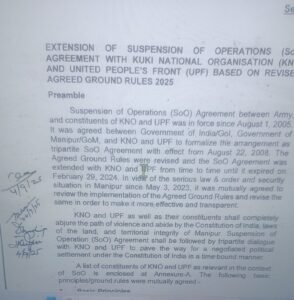
➤ A tripartite meeting among representatives of MHA, Govt. of Manipur, and Kuki National Organisation/KNO and United People’s Front/UPF also held at New Delhi
➤ The meeting concluded with the signing of a tripartite Suspension of Operations (SoO) Agreement on re-negotiated…
— PIB India (@PIB_India) September 4, 2025
Similarly, Aaron Kipgen, spokesperson of the United People’s Front (UPF) and general secretary of the Kuki National Front (KNF)—a key constituent of the UPF—expressed strong displeasure with the PIB for what he described as a distortion of the agreement’s content.
“I condemn the PIB for misrepresenting facts on such a sensitive issue. We have never said that we will hold discussions for a political solution to bring lasting peace in Manipur. The agreement clearly states that we will pursue a negotiated political settlement under the Constitution of India in a time-bound manner,” Kipgen asserted.
The UPF spokesperson demanded that the PIB should take steps to clear the air on this issue. “I hope that the PIB would present the facts accurately and issue a clarification to clear the confusion,” he added.
Second, on the issue of National Highway-02, the PIB statement claimed the Kuki-Zo Council had agreed to “open NH-02 for free movement of goods and commercial vehicles.” In reality, the agreement only referred to appeals made to residents of Kangpokpi to assist security forces in ensuring safe movement of vehicles between Imphal and Dimapur.
READ: From “Insult” to “Apology”: How Congress Targets PM Modi’s Manipur Trip
The Kuki-Zo Council swiftly rebutted the PIB claim, stressing that NH-02 was never closed or blocked in the first place. The highway, they noted, had remained open for commuters and essential goods. “The question of ‘reopening’ does not arise,” the council emphasized. Their appeal, they explained, was limited to the Kangpokpi stretch of NH-02, where residents were urged to cooperate with central security forces deployed for road safety. They further underscored that this should not be misinterpreted as consent for unrestricted movement across buffer zones dividing Meitei and Kuki-Zo areas. “The sanctity of the buffer zones will continue to be strictly respected and maintained,” the council said.
As expected, the differences between the signed agreement and the PIB release have stirred confusion and outrage within the Kuki-Zo community. While the KNO has sought to clear the air, it is equally incumbent upon the MHA to dispel the cloud of confusion.


